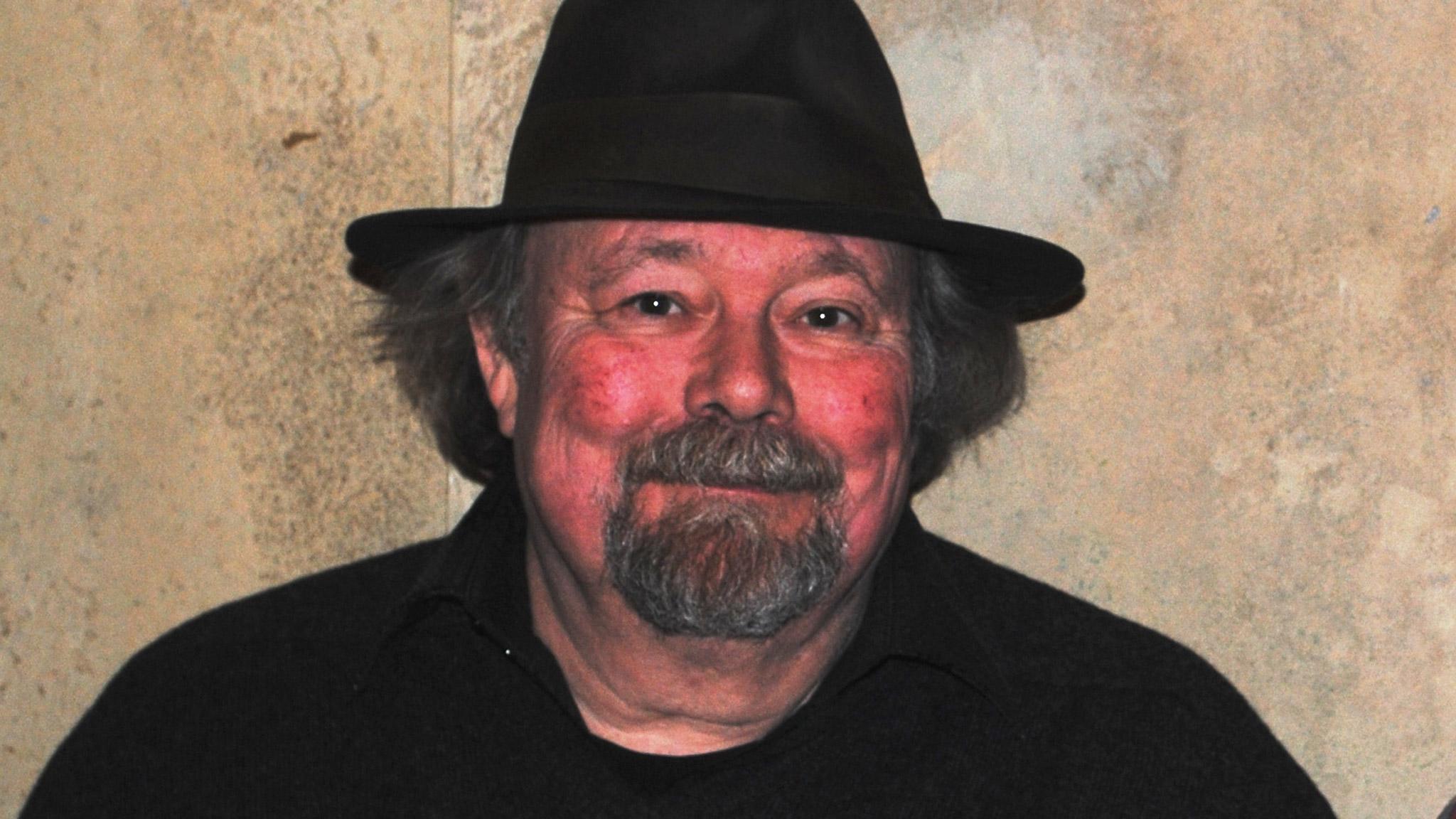Hull Truck aims to stage revival after cash crisis
- Published
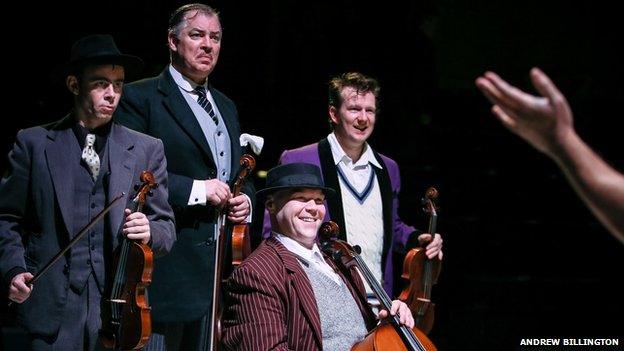
A new stage version of Ealing comedy The Ladykillers is Hull Truck's latest production
In the 1980s, Hull Truck Theatre became a global success story. After the Yorkshire-based company got a new £15m building six years ago, it hit trouble. But now it is trying to get back on its feet in time for its home town Hull's year as UK City of Culture in 2017.
When playwright John Godber attended his first board meeting as artistic director of Hull Truck Theatre in 1984, he was informed the company was insolvent.
Godber's response? He wrote the plays Bouncers, Up 'n' Under and Teechers - all enduring hits that put bums on seats at home and won fans and awards on tour from London to Los Angeles.
How Hull Truck could do with another Godber.
In his day, the theatre was a scruffy former church hall. He ended up staying for 26 years and oversaw the company's move to a shiny purpose-built venue before leaving in 2010.
That was meant to usher in a new era for Hull Truck, and so it turned out. Unfortunately it has not been a very happy one.
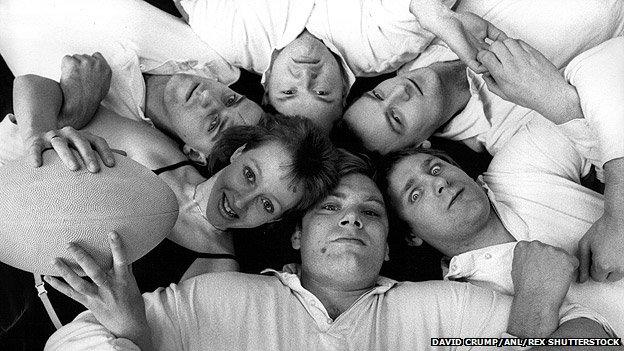
Plays such as Up 'n' Under helped put Hull Truck on the map in the 1980s
It struggled to fill its new, bigger auditorium and has required extra funding from Arts Council England to the tune of £1.75m over four years to keep it afloat.
The new Hull Truck may not have another Godber but it does have Mark Babych, who has been striving to turn around the company's fortunes since being appointed artistic director in 2013.
He likens the six years since the launch of the new venue to "the world's most difficult birth".
Babych says: "It feels like it's been in labour for such a long time. You now want your child to come off the ventilator and grow up and become part of the modern world. That's what it's felt like.
"I've come in as the latest parent and have tried to nurture it back to health."
Godber made Hull Truck famous with his boisterous and big-hearted tales of nightclub doormen, rugby league players and teachers at comprehensive school.
"People knew what it was," Babych says. "That's not to say everybody loved it, but at the heart of it it had a specific artistic voice."
'Confusing' changes
When the company moved, he says, shows that worked well in the old venue no longer worked so well any more.
Audience members started tightening their belts as the recession kicked in, and there were also several changes of management.
"Plus, with escalating costs, plus with changes in direction, plus with business plans changing, plus art changing, [that] completely confuses the audience. They stop coming," Babych says.
"They couldn't find the same personal emotional connection to this concrete and glass building that they could find in the other place."
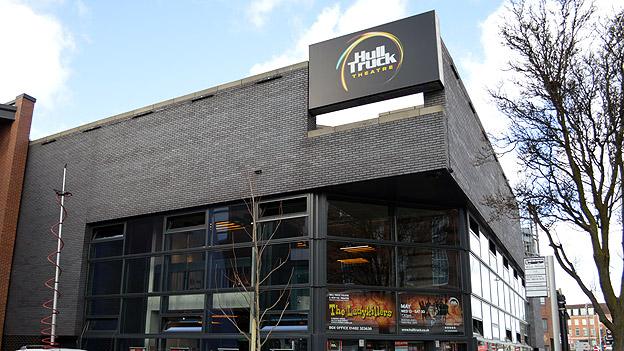
The theatre company moved into its new £15m home in 2009
Since arriving, Babych says he and executive director Janthi Mills-Ward have made changes to put the company back on an even keel.
"We've really stabilised now and we are moving forward in a way which feels really good and feels natural and feels like people are starting to come back," he says.
Babych is planning to focus the company's efforts on creating four home-made shows a year, including two co-productions, along clear artistic themes.
Since Godber's departure, Hull Truck has "overstretched ourselves by doing too much and not enough quality", he says.
There will be a trilogy of new plays about Hull and its history, starting with Dancing Through the Shadows, inspired by writer Richard Vergette's family experiences during World War Two.
The trilogy is "looking at events from our city which in some way have shaped our identity, and maybe have held us back and reinforced a stereotype of what Hull is", Babych says.
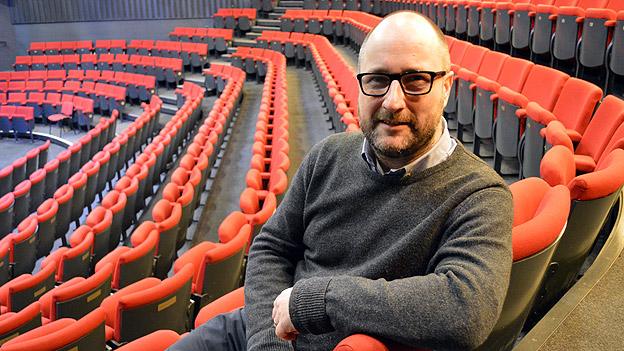
Mark Babych says the City of Culture celebrations will help change Hull's image
Hull hopes that stereotype will be wiped away in 2017, when it becomes UK City of Culture.
The year-long cultural festivities will prove a point to those people who are "still talking about the same old rubbish" about Hull, the director predicts.
"The eyes of the UK are going to be on us and we've got to put on a bloody good party."
The only confirmed show for Hull Truck in 2017 is a historical farce about the city's role in the English Civil War by Richard Bean, who wrote One Man, Two Guvnors for the National Theatre.
'Game changer'
That will be a co-production between Hull Truck and the Royal Shakespeare Company.
"We're inviting people to make extraordinary work in the city that we wouldn't ordinarily get to see," Babych says.
"The conversations are with major national and international theatres, as well as artists within the regions.
"We're saying to people, 'Come and do your world premieres here but don't just rock up with your show - be in residence with us. Make work with us. Leave a legacy.' "
Being City of Culture is giving Hull Truck better access to talent and major companies than it would normally have.
"It's an enormous difference - it's a complete game changer," Babych says. "Obviously we couldn't do it without the extra financial investment that's coming with City of Culture.
"There is an embarrassment of riches on the table and not everything will see the light of day."
Feel-good play
Before 2017, Babych is directing a new production of The Ladykillers, based on Father Ted writer Graham Linehan's adaptation of the classic Ealing comedy.
The feel-good play is being co-produced with the New Vic in Newcastle-under-Lyme, where it is currently running before moving to Hull Truck next month.
Babych thinks the Hull company had been locked in to a mentality of only having plays with two or three actors. "So what we were looking for was a piece of work that would enable us to get some joy on the stage," he says.
The Ladykillers is a familiar story, but one which "allows us to stretch ourselves a little bit artistically", the director says.
"And [it] will give people a good night out, because we do want that. We do want this joy to come through the building.
"It's important to have joy flowing through the building again."
The Ladykillers runs at the New Vic until 2 May, at the Stephen Joseph Theatre in Scarborough on 5-9 May and at Hull Truck on 13-30 May.
- Published14 January 2015
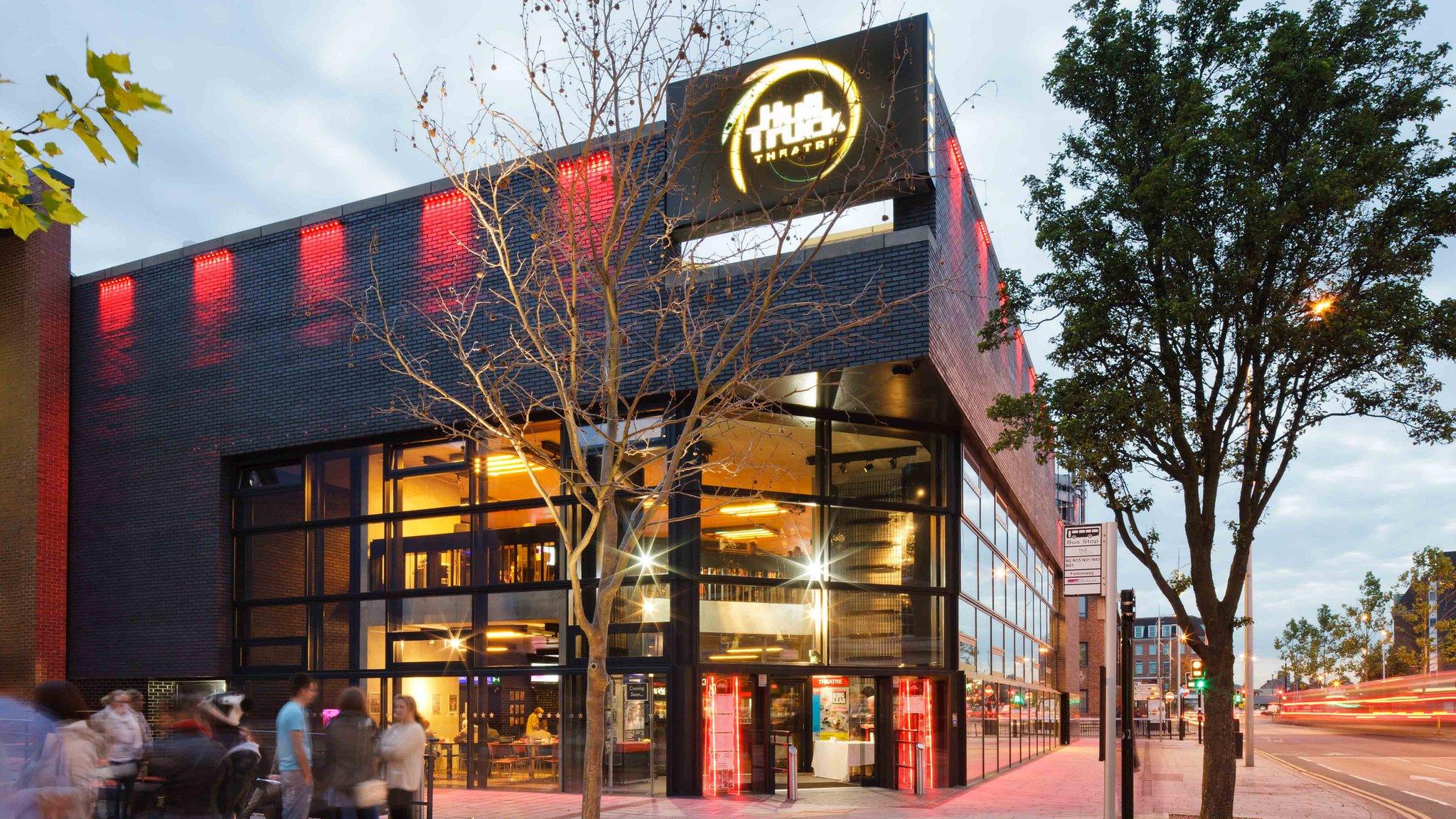
- Published23 April 2014

- Published20 November 2013
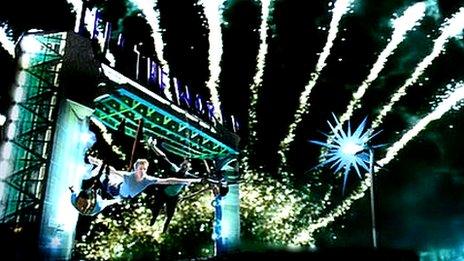
- Published20 November 2013
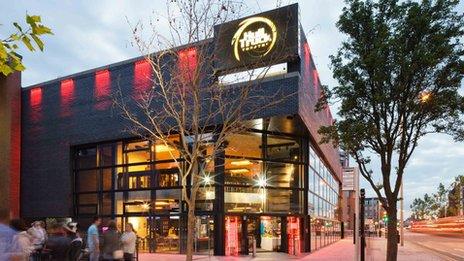
- Published20 November 2013
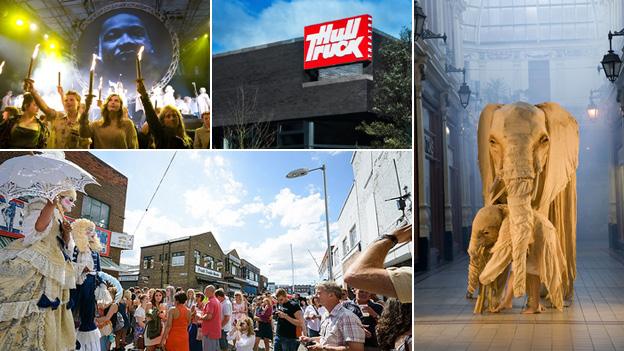
- Published11 April 2013
